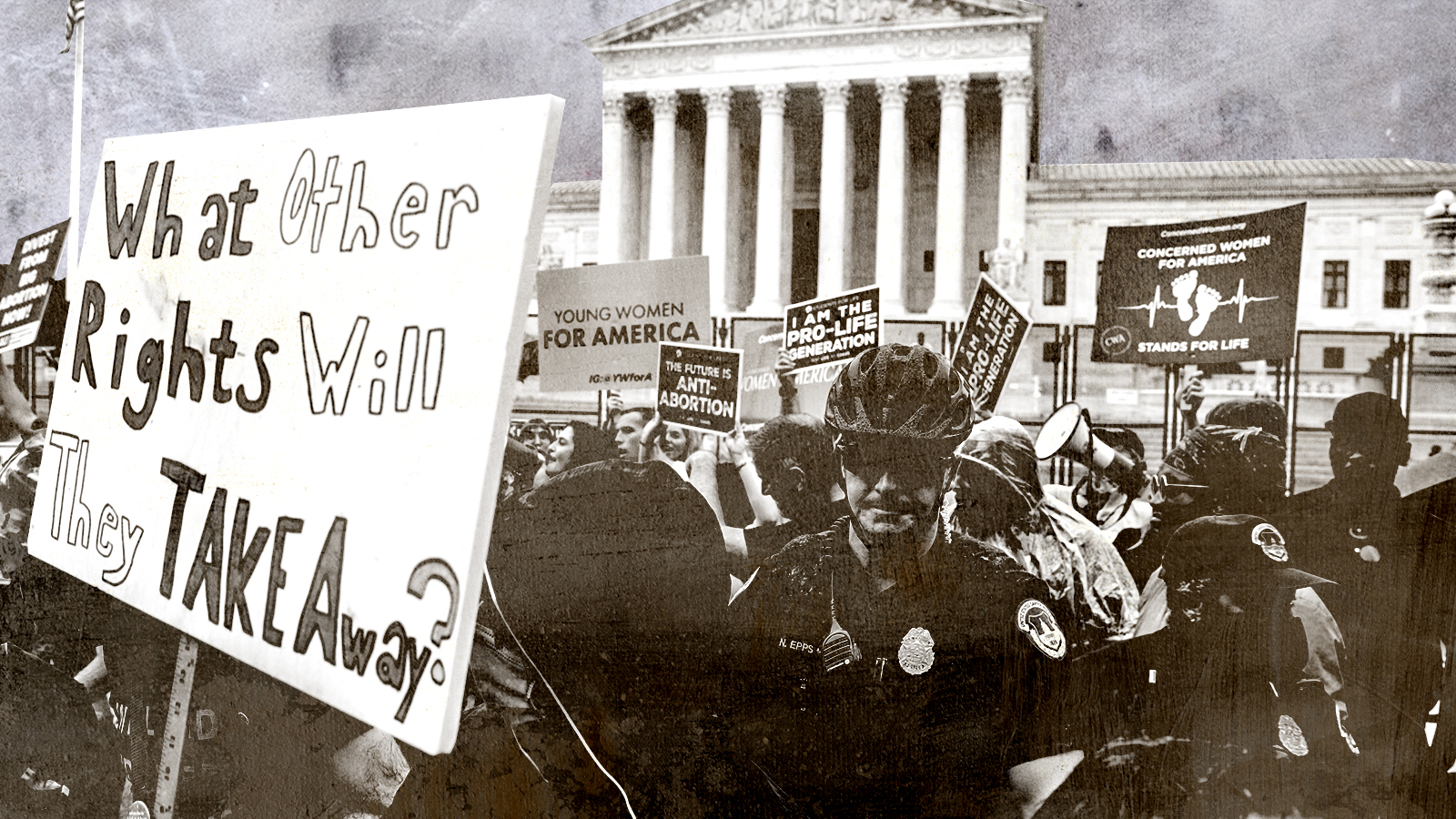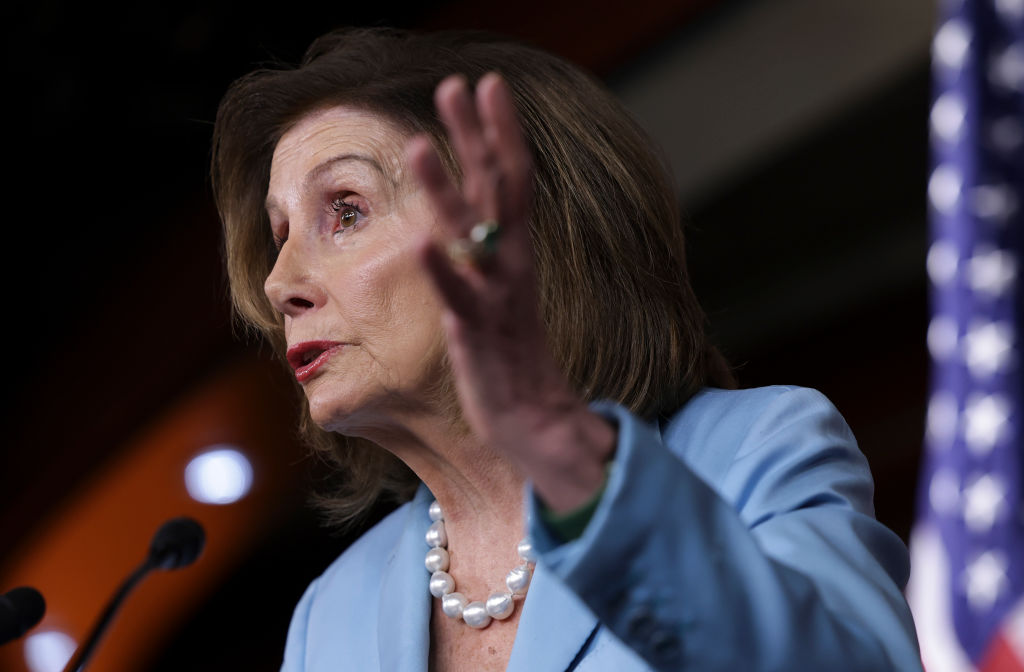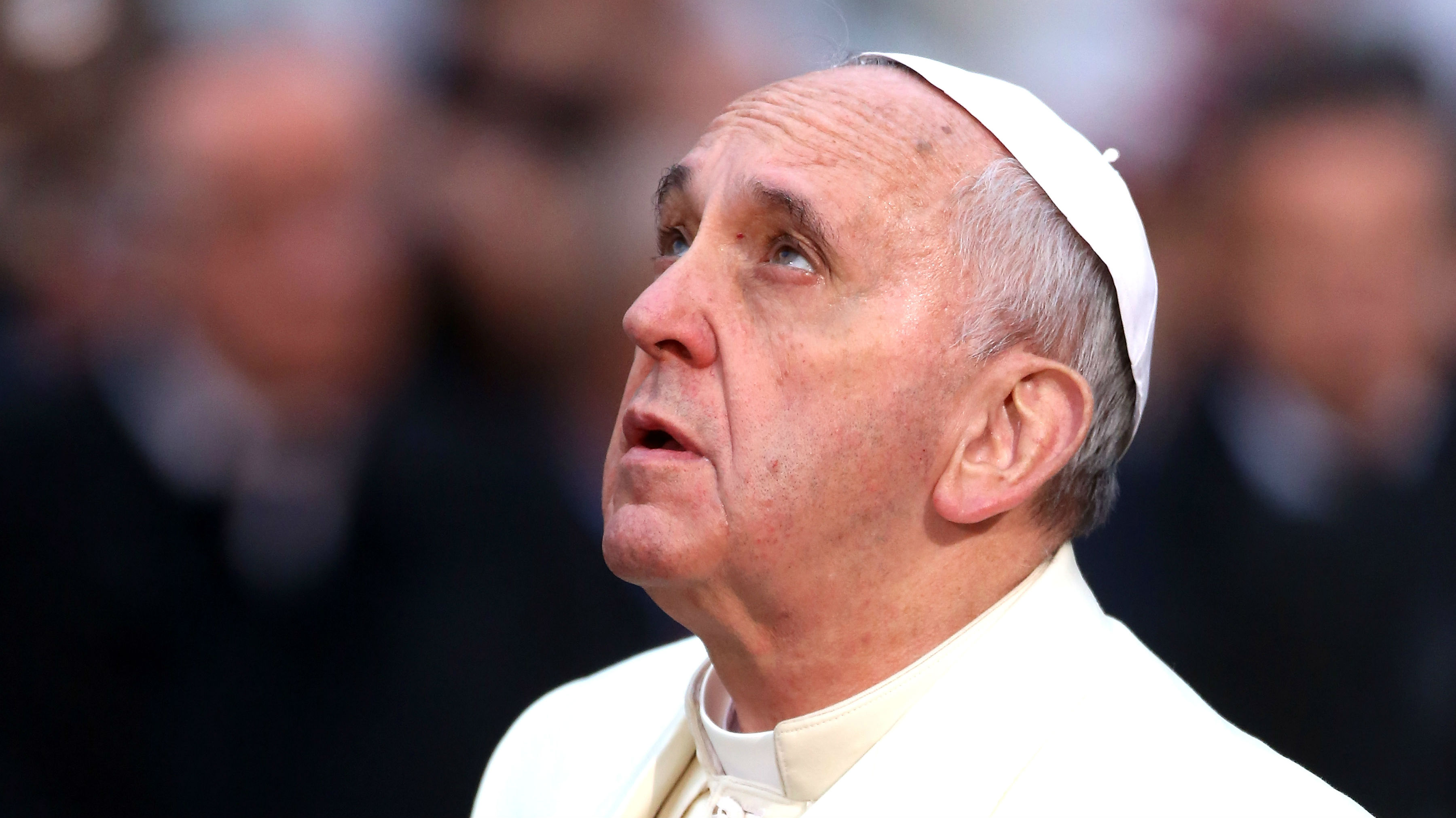Can outlawing abortion infringe on religious liberties?
The sharpest opinions on the debate from around the web


A free daily email with the biggest news stories of the day – and the best features from TheWeek.com
You are now subscribed
Your newsletter sign-up was successful
The six conservatives on the Supreme Court have expanded the scope of religious liberties in recent years, blurring or erasing several lines between church and state. Those same six justices overturned Roe v. Wade on Friday, deciding there is no constitutional right to abortion — a policy outcome long championed by conservative evangelical Christians and Catholics. But might banning abortion also curtail the free exercise of religion?
That's the argument Congregation L'Dor Va-Dor in Florida's Palm Beach County is making in a legal challenge to Florida's new abortion law. Under Jewish teaching, abortion "is required if necessary to protect the health, mental or physical well-being of the woman," among other reasons, the lawsuit says. "As such, the act prohibits Jewish women from practicing their faith free of government intrusion and this violates their privacy rights and religious freedom," threatening "the Jewish people by imposing the laws of other religions upon Jews."
Can outlawing abortion violate the First Amendment's guarantee of free exercise of religion?
The Week
Escape your echo chamber. Get the facts behind the news, plus analysis from multiple perspectives.

Sign up for The Week's Free Newsletters
From our morning news briefing to a weekly Good News Newsletter, get the best of The Week delivered directly to your inbox.
From our morning news briefing to a weekly Good News Newsletter, get the best of The Week delivered directly to your inbox.
Religious liberty goes both ways
"No faith is monolithic on the abortion issue," The Associated Press reports. "Yet many followers of faiths that do not prohibit abortion are aghast that a view held by a minority of Americans could supersede their individual rights and religious beliefs." For example, "Jewish leaders from across the ideological spectrum" agree that "deeply rooted Jewish teachings indicate that abortion is permissible — and even required — if a mother's life is in danger," The New York Times adds.
"If you are an observant Jew, then you live by a principle that says, in Hebrew, 'Pikuach Nefesh Docheh Et HaKol,'" or "if someone's existence is in peril, the obligation to address the situation moves aside any other obligations," Cornell Law professor Sherry Colb writes at Justia. That means "if a pregnant woman is experiencing serious medical complications that can be treated only by terminating her pregnancy, then she has an obligation to expel the contents of her uterus," because under Jewish teachings, "the woman is a person and the zygote/embryo/fetus is not."
These aren't sincere religious objections
"Judaism is not a centralized religion," Josh Blackman, a professor at the South Texas College of Law Houston, writes at Reason. "There is no Jewish equivalent of a Pope" and "no official or standardized set of teachings," including on "whether Jewish law in fact imposes some sort of obligation or duty to have an abortion to save a woman's life." And even if there were such an obligation, the liberal Jews at Congregation L'Dor Va-Dor are in no position to claim it.
"Historically, the people who brought Free Exercise claims tend to be more observant or orthodox," Blackman argues. "Those who are less devout are less likely to be burdened by restrictions on religion." Under current precedent, you have to prove that a law imposes a "substantial burden" on your exercise of religion, and that's easier to prove for people who take their religion more seriously.
A free daily email with the biggest news stories of the day – and the best features from TheWeek.com
So, for example, a Jew who thinks keeping Kosher and not working on the Sabbath are non-binding but "deems as binding the interpretation of halacha [Jewish law] that affects abortion, I think the person's sincerity can be challenged," Blackman writes. This person "may sincerely believe that her religion allows — and perhaps even encourages — an abortion in such cases," but "the legal concept of a 'substantial burden,' which was developed in the context of Christian faiths, does not neatly map onto a Jewish faith that does not actually impose any requirements on congregants, but instead only offers aspirational principles."
It isn't just Jews
Actually, Muslim Americans "are uniquely positioned to condemn abortion bans and their attack on every person's constitutional right to religious liberty," the American Muslim Bar Association and HEART Women and Girls wrote in April.
Muslims have complex understandings of conception, gestation, and life, and "abortion is part of that," Zahra Ayubi, a professor of religion at Dartmouth College, tells Religion News Service. Abortion has generally been permitted up to 120 days in Islam, and restrictive abortion laws, like the near-total ban in Texas, "take away from Muslim rights to abortion in their tradition and their religion."
The Texas law imposes the "moral position of the Christian right and the anti-abortion movement" on other communities with different beliefs, says Rutgers adjunct law professor Abed Awad, who specializes in Shariah (Islamic) law. "This is not only contrary to the Shariah, but it's also in a lot of respects contrary to living in a religious, cultural plural society."
This court only protects conservative Christians
"To claim that my religion permits abortion, or that this statute addresses a point of religious disagreement, is not nearly enough," Douglas Laycock, a professor of religious studies at the University of Virginia Law School, tells the Times. "It is not what your religion permits that is protected, but what you do principally for religious reasons."
For example, "my religion might permit littering," but "I would almost certainly fail if I were to argue that I am entitled to an exemption from the prohibition against littering because my religion allows me to litter, Cornell's Colb writes at Justia. "So long as my religion does not require me to litter, I can obey my religious rules and comply with the local ordinance at the same time." But even if you could prove your religion requires you to have an abortion, she adds, you would still be out of luck with this Supreme Court.
"Why? Because five and perhaps six of the justices on the court view abortion as murder, no matter how early in pregnancy," Colb writes. Imagine a woman named Vivien tells the court she has a religious obligation to throw her 2-year-old into an active volcano. The court would say no, she explains, because "the state's interest in protecting innocent people from being killed will override Vivien's religious observance, and most of us would not want it any other way."
So long as the court's conservatives "view an abortion as murder," Colb writes, "they will treat claims for religious exemptions just as they would Vivien's asserted right to throw her 2-year-old into an active volcano."
"The bottom line is that despite appearances to the contrary, this court is not especially friendly to Free Exercise claims," only "to conservative Christianity and, accordingly, to Judaism and Islam where the ask is minimal or the traditions happen to be the same," Colb argues. "The sooner we come to understand that the court is all about Christianity rather than some capacious vision of religious liberty for all, the sooner we will begin the process of finding solutions to our modern-day theocracy problem that do not ask the court to behave with integrity or consistency."
Peter has worked as a news and culture writer and editor at The Week since the site's launch in 2008. He covers politics, world affairs, religion and cultural currents. His journalism career began as a copy editor at a financial newswire and has included editorial positions at The New York Times Magazine, Facts on File, and Oregon State University.
-
 Political cartoons for February 19
Political cartoons for February 19Cartoons Thursday’s political cartoons include a suspicious package, a piece of the cake, and more
-
 The Gallivant: style and charm steps from Camber Sands
The Gallivant: style and charm steps from Camber SandsThe Week Recommends Nestled behind the dunes, this luxury hotel is a great place to hunker down and get cosy
-
 The President’s Cake: ‘sweet tragedy’ about a little girl on a baking mission in Iraq
The President’s Cake: ‘sweet tragedy’ about a little girl on a baking mission in IraqThe Week Recommends Charming debut from Hasan Hadi is filled with ‘vivid characters’
-
 Vatican defrocks MAGA priest for 'blasphemous' social media posts, 'persistent disobedience'
Vatican defrocks MAGA priest for 'blasphemous' social media posts, 'persistent disobedience'Speed Read
-
 Pelosi denied communion by archbishop over support for abortion rights
Pelosi denied communion by archbishop over support for abortion rightsSpeed Read
-
 Pope Francis empowers priests to forgive abortion
Pope Francis empowers priests to forgive abortionSpeed Read Terminating a pregnancy is a 'grave sin' but not an unforgivable one, Pontiff says
